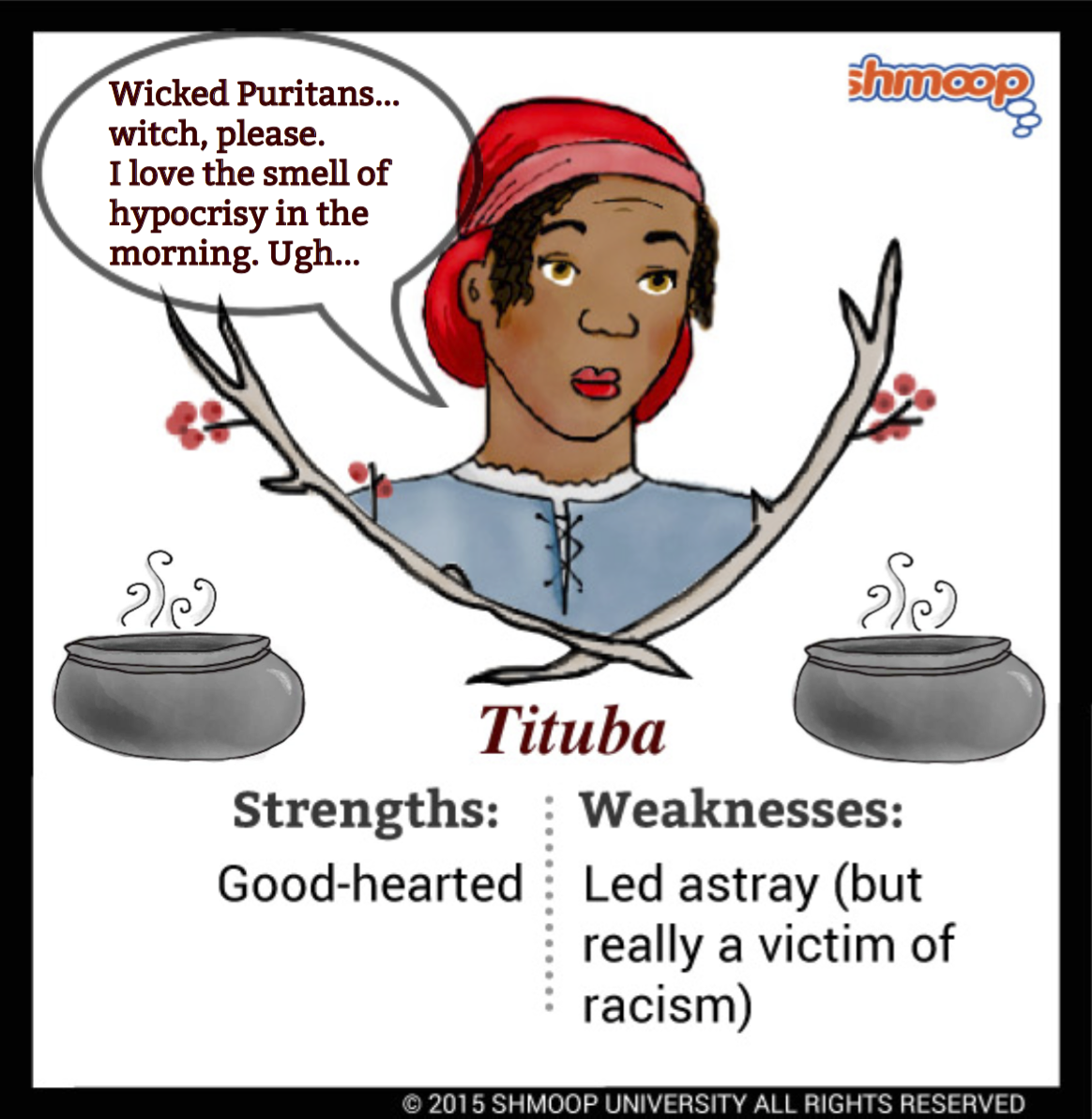Character Analysis

(Click the character infographic to download.)
Tituba, the Reverend Parris’s slave, is a woman from Barbados who practices what the Puritans view as “black magic.” Of course, she mainly does this because the conniving Abigail manipulates her into doing it. Tituba admits her supposed sin, but we never really find out what happens to her. The ambiguity of her fate actually emphasizes that whether or not these women are in fact witches is totallybeside the point.
And we have to say that, although there is nothing in the play that directly comments on it, racism undoubtedly plays a huge part in her fate. The fact that she was convicted at all for her practices is actually inherently prejudiced. Before being brought to Massachusetts, Tituba never saw singing, dancing, and spell-casting as evil. Such practices were spiritual and descended from her African roots. This is shown in Act IV, when we see poor Tituba say to her jailer:
"Devil, him be pleasure-man in Barbados, him be singin and dancing […] It's you folks—you riles him up 'round here […] He freeze his soul in Massachusetts, but in Barbados he just as sweet." (IV.15)
It's ironic that the Puritans, who came to America to escape religious persecution, would practice such deliberate, cruel, and ignorant persecution themselves.